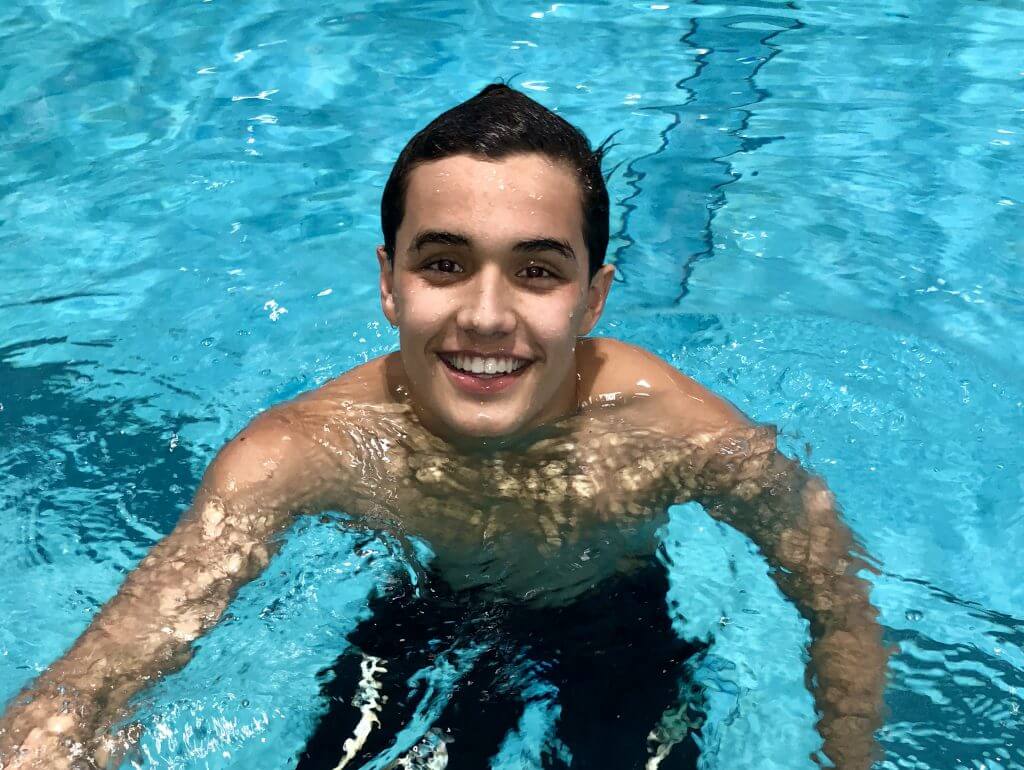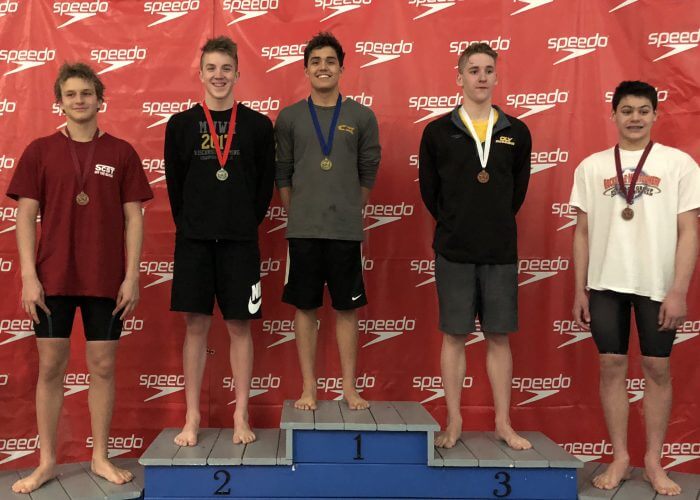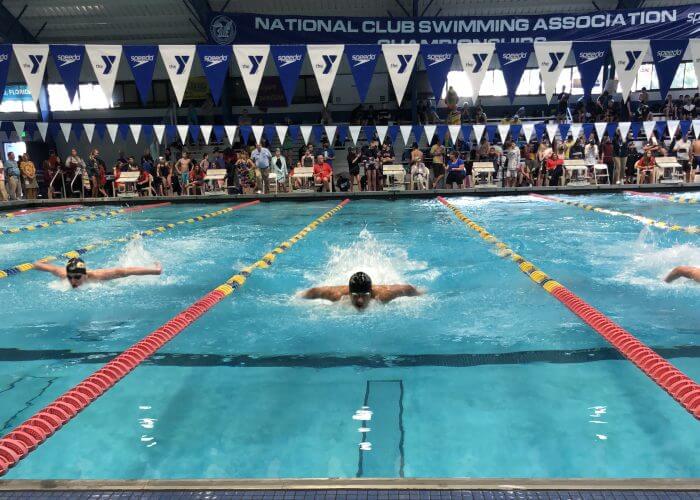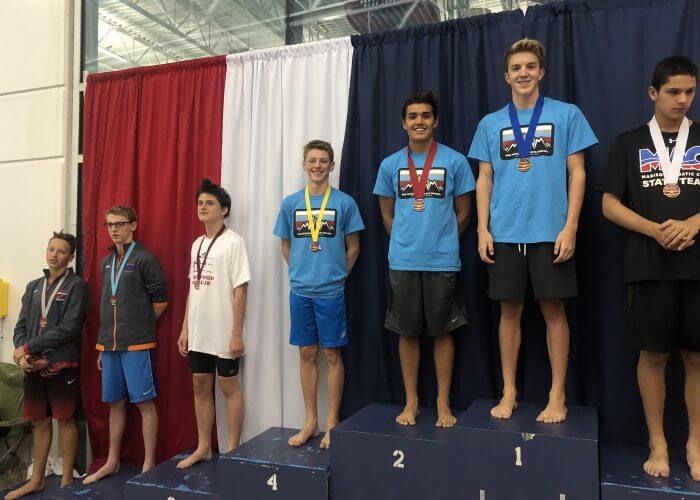Swimming for Six Seconds of Happiness

By Melissa Wolf, Swimming World College Intern.
If winning only brings seconds of happiness, then maybe it is time to change the focus. Many great age-group swimmers struggle tremendously when they find that the pressure of winning outweighs the joy of competing.

Photo Courtesy: Melissa Wolf
Winning Isn’t Everything
“I wish everyone was successful enough to realize winning isn’t everything,” Sam Bork, age 14, says while sitting at a burger joint eating fries, a chocolate shake and a big cheeseburger. Six months ago, Bork would not have touched this meal, nor would he stay up late or miss a practice. Bork had given his life and all his freedom to the black line at the bottom of the pool.
Bork started swimming competitively at the age of five and was not an instant success. He was good, but not great yet. By age 12, he had his first taste of accomplishment: he was nationally ranked, set Wisconsin State records, broke Mexican national records and got his name in print. When he talks about this time, he says, “I was still just swimming, just racing. Nothing had changed in my mind.” But that wasn’t the case for long. Things started to change around him; his family soon put more pressure on him to keep winning because they saw what his success could bring.
Racing for Fun

Photo Courtesy: Sam Bork
Bork was not motivated by money or fame; he simply liked to win: “It’s the race – the adrenaline – that’s what makes it fun!” The burnout he experienced later happened due to the external pressures that replaced the fun. The pressure to improve and swim well came from his parents, who were banking on him getting a scholarship. Swimming had become less about being fun and more about taking care of others feelings and aspirations. How many swimmers would echo what Bork so clearly voiced?
Bork had never missed a practice: not because he wanted to be there, but because he felt he would let his family down if he didn’t go. He is a people-pleaser by nature and is just now discovering how he can be manipulated by feelings of guilt. When he was younger, there were practices he intentionally swam sloppily just so he’d get asked to leave. He recalled one time in third grade when he faked an ankle injury so he could stay home and play LEGOs with his older brother. He was too scared to tell his family he didn’t want to practice that day.
Bork’s story mirrors so many stories of young swimmers. When asked what he felt when he won or achieved a new cut, Bork said: “I was happy for about six seconds after my race; then, I realized nothing is going to change in my life because I won a race.” This perspective comes from a 14-year-old boy who truly was hoping for something to change: for some of the pressure to be released.
In the year before the burnout, he swam all over the country meeting Jason Lezak, Caeleb Dressel, Ryan Lochte, Misty Hyman and more. He attended the National Diversity Select Camp at the OTC and exceeded any expectations anyone had for him. However, none of that motivated him or made him happy, so he quit. One day, he walked off at practice and said he’d never return. His family was crushed, his teammates were bewildered and his coach carried the burden of knowing he was hurting and confused.
The Comeback Kid

Photo Courtesy: William Hayon
His purposeful return came on his terms. He recalls, “It was rough getting back in after nine weeks off. I was nervous to see how I would do, but my new practice mentality was different and it was fun again.” By the time state entries were due, Bork chose to swim a full meet including all relays. He explained, “I knew best times and records were unlikely due to my lack of practice, but I wanted to win so badly.” For a kid who says winning isn’t everything he sure likes to win. Maybe others see it a different way – he doesn’t like to win; he just hates to lose. He is known by his team as a true competitor and is all-in, all of the time. Bork’s response to the question, “If winning isn’t everything, then what is?” would make any parent or coach proud:
At the end of the day, you need to be happy and proud of the person you are. I want to be great at something I do, but I can’t keep it up – being great every day. I’ve decided that I can be great and place second; and that makes me proud.
Bork wears a bracelet that says Difficult Right. He says, “It reminds me that doing the right thing is going to be difficult. It was hard to come back to swimming, but it was the right decision.”
Not many people walk away when they are at the top. Bork did and he returned a better person and swimmer who still has great potential as long as the sport stays fun. As a coach, parent or swimmer, it is easy to focus on times and tangible achievements; however, one of the greatest accomplishments of any swimmer is when they find their value in who they are and not just what they accomplish in the pool.
All commentaries are the opinion of the author and do not necessarily reflect the views of Swimming World Magazine nor its staff.




We are so proud of you Sam!! #swimfamilyforlife
#safesport
#safesport
Thanks so much for sharing Melissa and Sam! Great relevant article we can identify with! Looking forward to seeing you both at the pool!